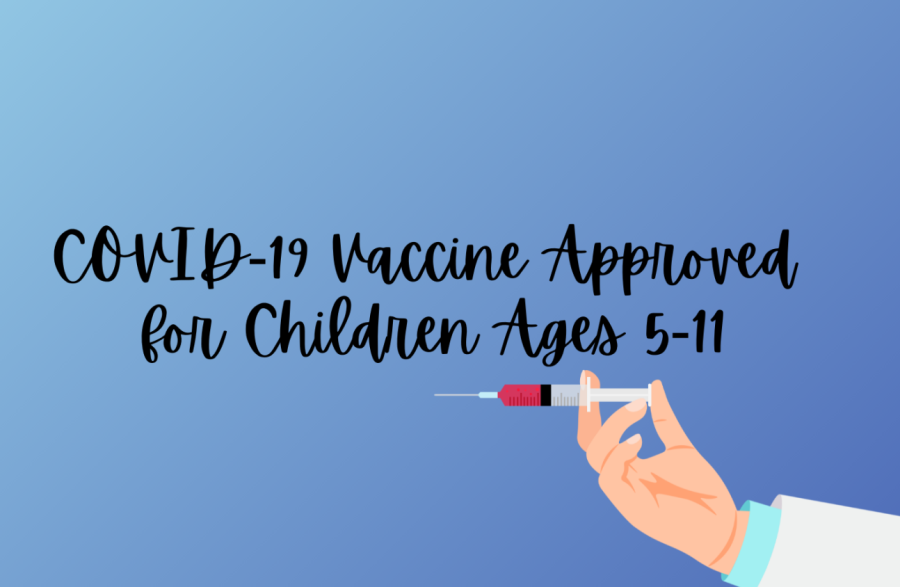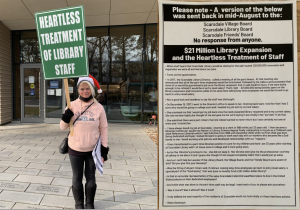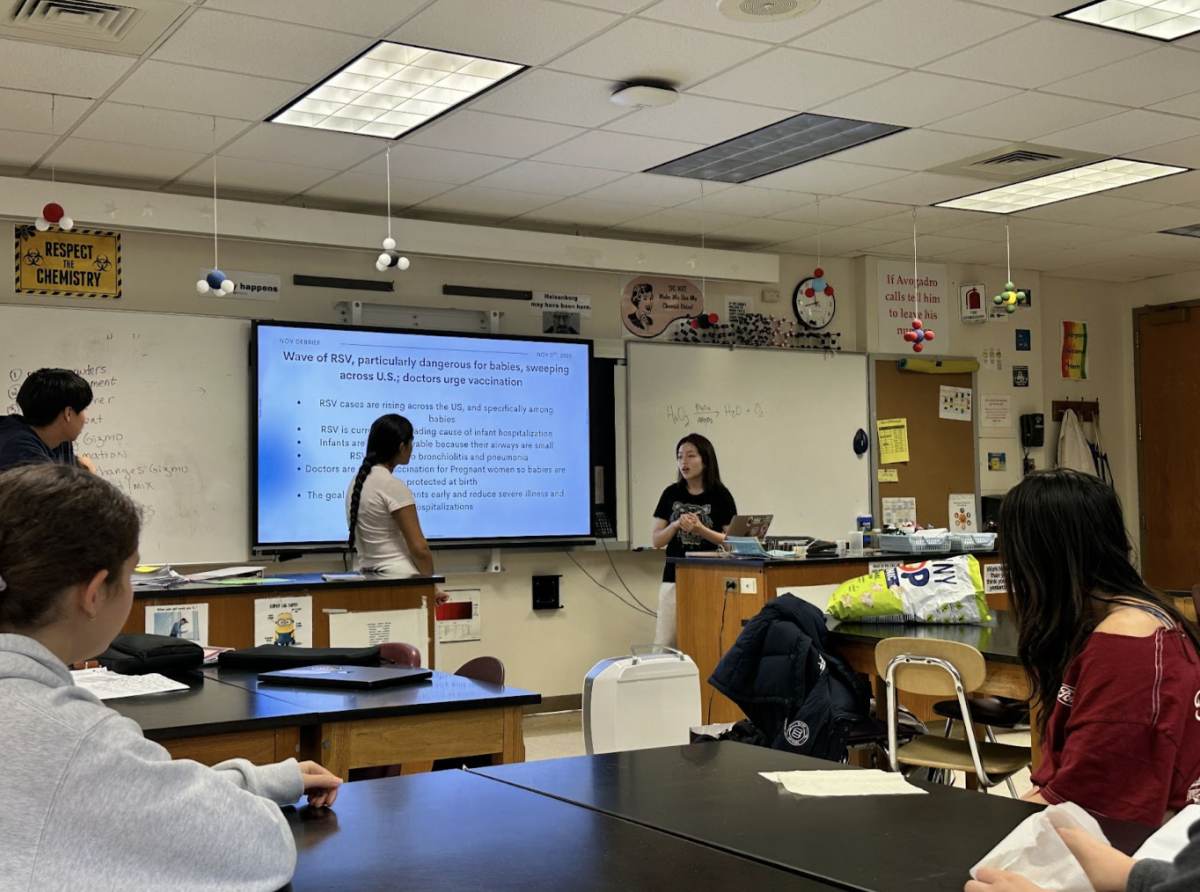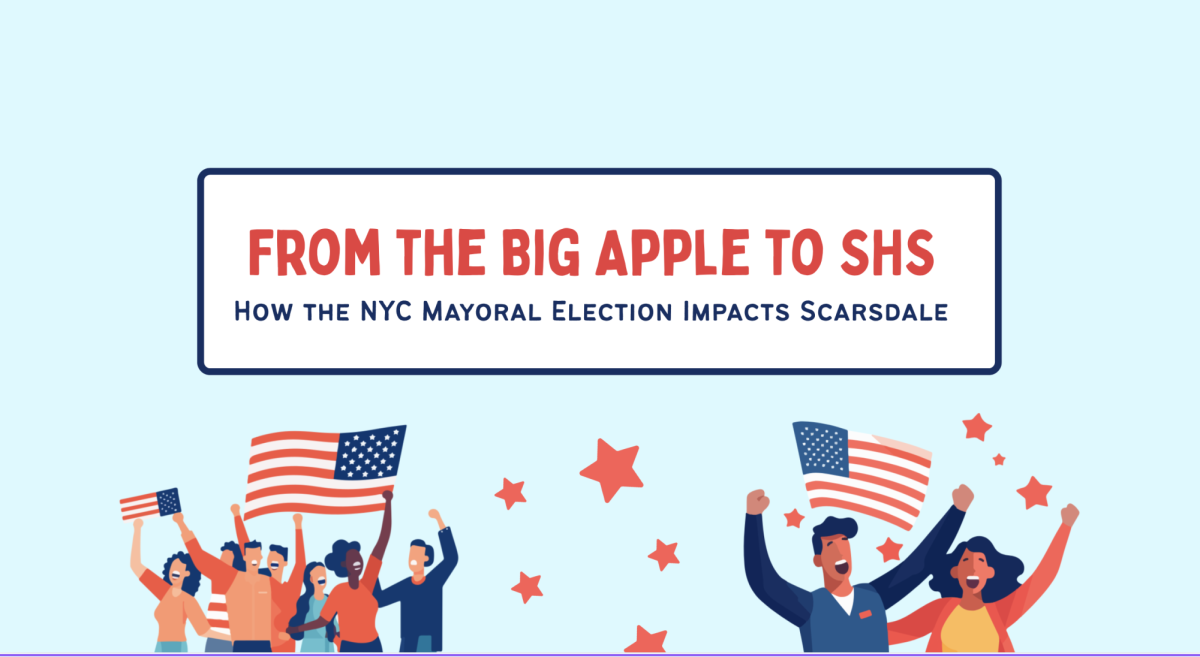COVID-19 Vaccine Approved for Ages 5-11
COVID-19 vaccine becomes approved for children ages 5-11, which makes strides toward universal protection from the vaccine.
November 16, 2021
In a step towards universal inoculation, President Joe Biden announced approval of COVID-19 vaccines for children ages 5-11 on November 3rd, 2021. The Biden administration expects these doses to be distributed starting the week of November 8th. “We’ve taken a giant step forward to further accelerate our path out of the pandemic,” said Biden in a White House address. “For parents all over the country, this is a day of relief and celebration,” he added.
For the safety of the children, Biden’s proclamation seems to ring true. “Young children [kindergarten to sixth grade] are unable to understand the gravity of the Coronavirus situation,” said Alison Jiang ’23. Young children are forced to wear masks in public spaces without proper understanding of such protocols. To them, “coronavirus is a confusing concept,” and so they are likely to underestimate the severity of the situation and to take the advised protective measures very loosely. For instance, they may wear their masks improperly, or not at all when not actively monitored. They may neglect to keep a safe six meters of distance and only see the measures as an impediment to conversations and playing with their friends. The concept of viruses doesn’t hold much weight for them. “So, these vaccines will provide an extra protective barrier to keep the children safe,” explains Jiang.
Similar to the elderly, young children are generally more susceptible to COVID-19 infections because their immune systems have yet to mature. This further emphasizes the importance of vaccines in keeping children healthy. Furthermore, with Scarsdale schools opening up for in-person learning without the option for hybrid or virtual, young children congregating in schools presents the risk of transmitting the virus. “There are lots of people who are asymptomatic…this means that they have the virus, and are able to spread the virus, even though they do not have any symptom,” explained Jiang. With their tendency to ignore protective protocols, children are likely to become unknowingly infected and transmit the virus to their parents or grandparents, who can get sick. Vaccines given to these children can mitigate this risk of transmission, making learning environments far more safe. Parents can therefore allow their children to interact with their friends and learn in a safe environment, without worrying about the risk that may arise by sending their children to school.
However, some parents are skeptical that vaccinating their child will harm them. There has been an increased sentiment among parents that vaccinations will expose their children to disorders such as autism, cause infertility, or expose them to government surveillance. These claims are unfounded; however, they have made a large impact on campaigns for vaccination. In fact, a Kaiser Family Foundation poll estimates that, nationwide, less than a third of parents plan to immediately inoculate their young children. Universally many hope that with Biden’s approval, vaccination rates for children in Scarsdale will increase, thereby making the community a stronger and safer place. “It’s important to do the right research…[parents should] think about the community as a whole and what they can do to help minimize and eventually eliminate the pandemic,” concluded Jiang.

























